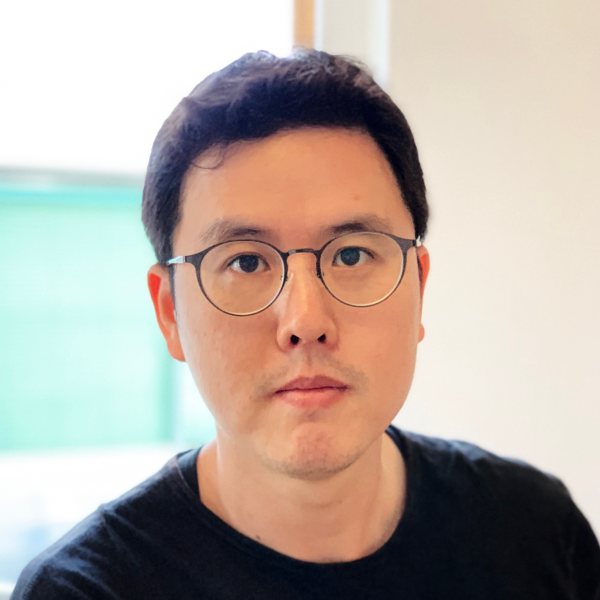
Grossman Ensemble premieres Dongryul Lee's "Unsmeared, like a bodiless horn"
Program notes:
Dongryul Lee's Unsmeared, like a bodiless horn premiered with the Grossman Ensemble on March 12, 2021.
Music is about relations. Time is expressed (or only can be perceived) by the relations between the preceding entities and the following entities, with things being changed either abruptly or gradually; or can be the same, either sustaining or repeating; or being created and dying away. Sound is also created by relations. It first comes to be born by the relation between waves and time (frequency), and then every sound in musical space is interconnected, either harmonically — in the same temporal space, melodically — in the continuous temporal space, or psychologically — in the formal musical space. This can give rise to new impressions when it encounters (becomes related with) the memory and emotion of the listeners. PROGRAM NOTES & BIOGRAPHIES Grossman Ensemble March 2021 | 5 The idea of relationship is the crux in Buddhist philosophy, where the world is created because of the chain of relations (연기-緣起, Prati¯tyasamutpa¯da, often translated as conditioned arising/dependent arising). In this piece, rather than delineating a clear topic/theme through its musical body, I set out to depict a self-fulfilled musical circuit (mundus) that is created by infinite relations, by using “a priori synthesis by which something will necessarily be produced in a given mode […] and an infinite analysis by which what is produced on the BwO [body without organs] (music) is already part of that body (music)’s production, is already included in the body (music), is already on it (but at the price of an infinity of passages, divisions, and secondary productions)” (Deleuze and Guattari, A Thousand Pleateus, 154.) The goal is for listeners to perceive aurally the way the creator (I) senses the (actual) world, represented metaphysically through acoustical-physical entities. According to the Diamond Sutra (금강반야바라밀경-金剛般若波羅蜜經), there is no thing that truly exists. Everything is temporary and always changing according to their interrelationships with others, which are also false beings. The one existential truth arises only after removing all of those nets of relations. In this piece, through dynamic movements of musical masses and their relations, I wanted to express this Buddhist conception of the truth, the existential light (무량광불-無量光佛, Amita¯bha) before all chains of relations, which only exists beyond the means of expressions (진여실상-眞如實相, Great Symbol, Maha¯mudra¯), by annihilating everything before it (멸진정-滅盡定, Nirodha-sama¯patti) or knowing that everything is just momentarytemporary (제법개공-諸法皆空, Su¯nyata¯). In this sense, this miniature can be regarded as a short Buddhist question (화두-話頭, 公案-Ko¯an (Japanese), Zen question.) The title is from the text in the Sutta Nipa¯ta, one of the earliest Buddhist scriptures:
Unstartled, like a lion at sounds.
Unsnared, like the wind in a net.
Unsmeared, like a lotus in water.
wander alone like a rhinoceros horn.
